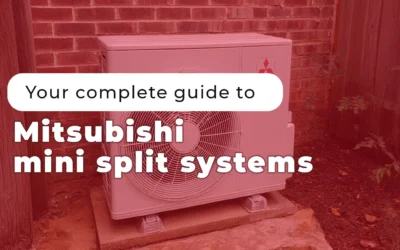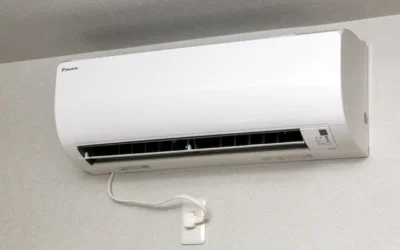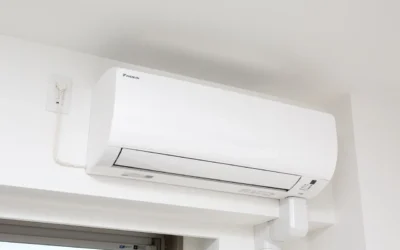Ductless Mini-Splits vs Central Air: Which Cooling System is Best for Massachusetts Homes?
Choosing the right cooling system can reduce energy bills by up to 30 percent and deliver room-by-room comfort for Massachusetts residences. In this comparison of ductless mini-splits vs central air, you’ll discover how each system works, the pros and cons in an MA context, cost and efficiency factors, local rebates, suitability for different home types, and installation nuances. We’ll also explore environmental benefits and key decision criteria so you can confidently select the ideal HVAC solution for your Bay State property.
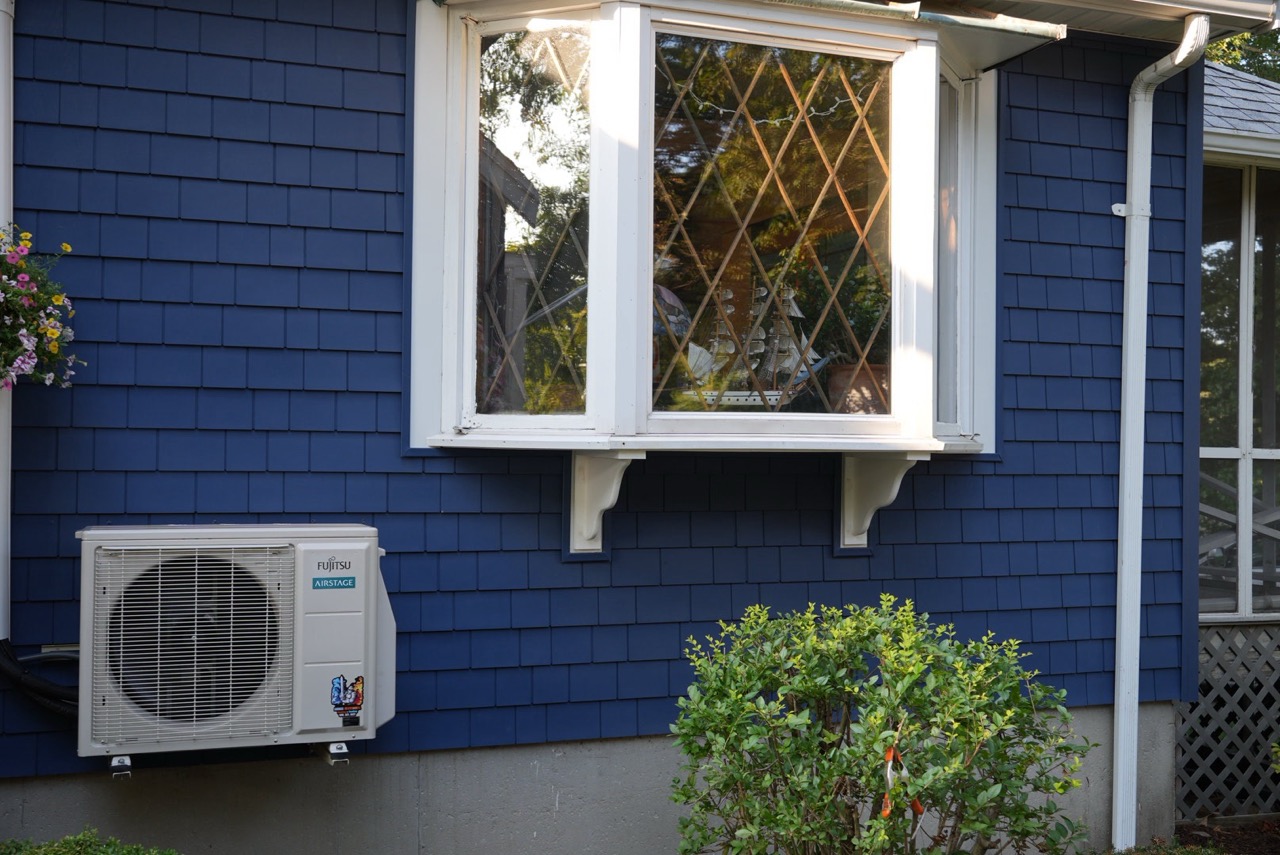
What Are Ductless Mini-Splits and How Do They Work in Massachusetts Homes?
Ductless mini-splits are compact heat pumps that transfer heat via refrigerant lines between an outdoor compressor and one or more indoor wall-mounted or ceiling-cassette units to provide targeted cooling; this approach eliminates energy losses from duct leakage and enables precise temperature control in each zone.
What Components Make Up a Ductless Mini-Split System?
A typical mini-split system contains three main elements:
- Outdoor compressor/condenser: circulates refrigerant and dissipates heat.
- Indoor air handlers: blow conditioned air into specific rooms.
- Refrigerant lines and control wiring: connect indoor and outdoor units.
These parts integrate seamlessly to offer rapid cooling with minimal installation footprint, making mini-splits highly adaptable to both new and retrofit scenarios.
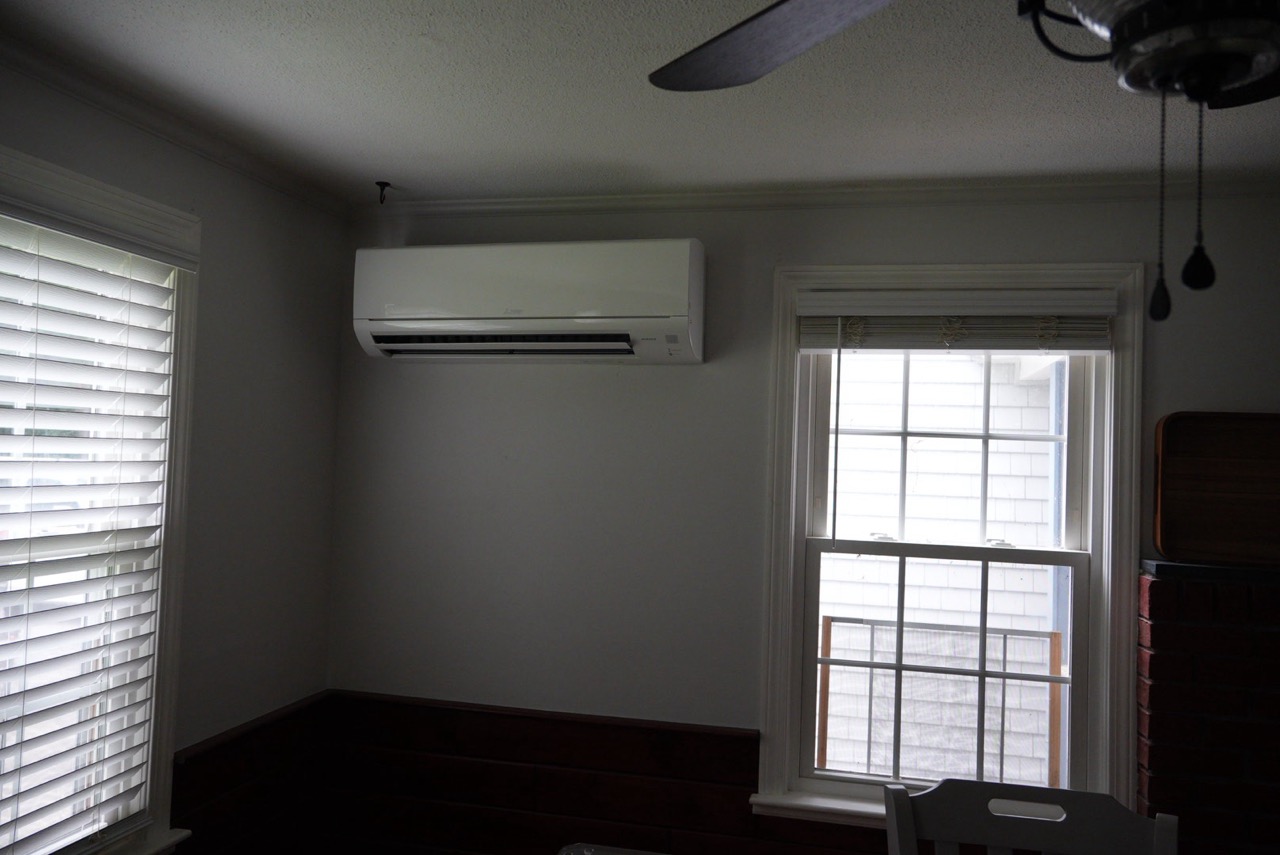
How Does Zoned Cooling Benefit Massachusetts Homeowners?
Zoned cooling lets residents set different temperatures by room, reducing overall energy consumption.
- Lowers utility bills by running only necessary zones.
- Enhances comfort for varied occupancy patterns.
- Prevents over-cooling unused spaces.
By directing cooling capacity precisely where needed, zoned mini-splits maximize efficiency in coastal humidity and inland summer heat alike.
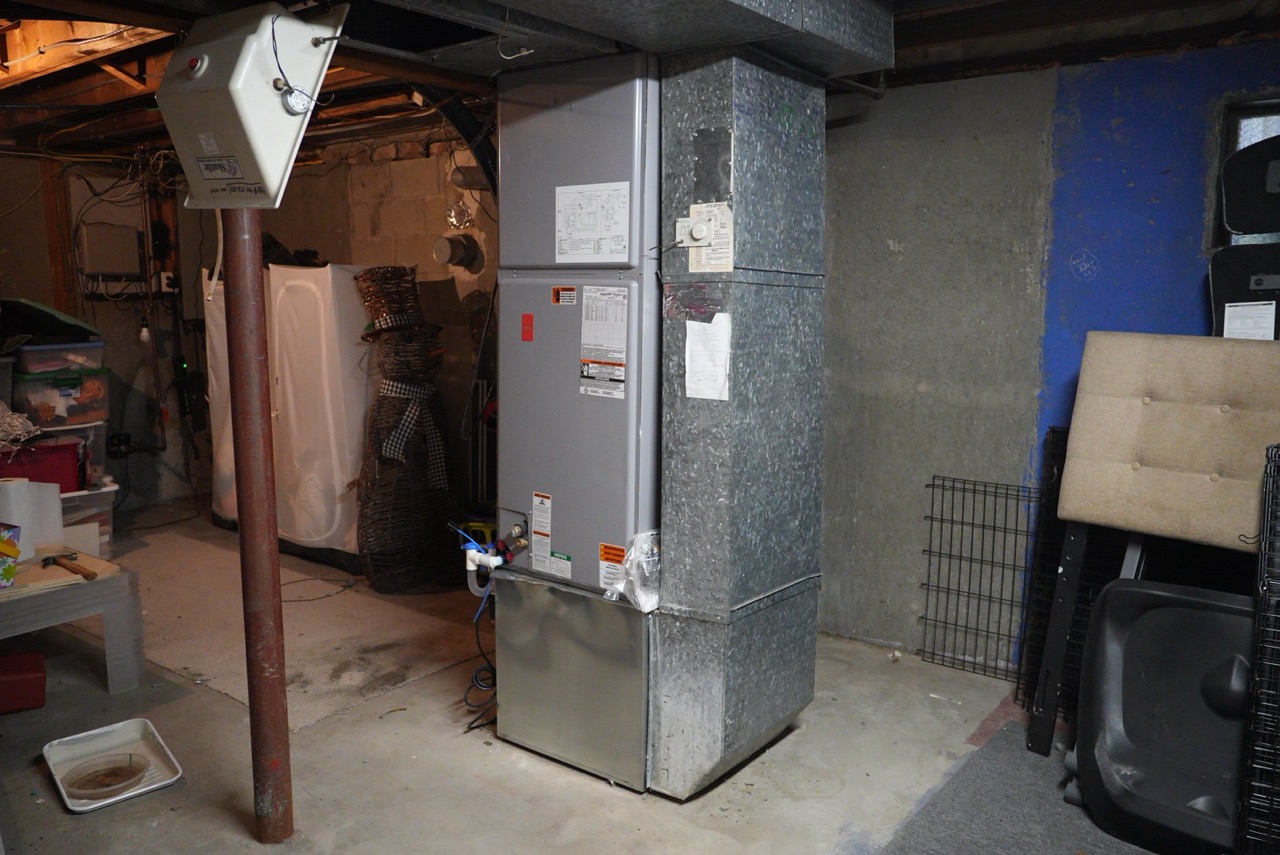
Why Are Mini-Splits Ideal for Older Massachusetts Homes Without Ductwork?
Older colonials and triple-deckers often lack existing duct runs, making ductwork installation invasive and costly. Mini-splits bypass this challenge by using small ¾-inch refrigerant lines that thread through walls or attic spaces, preserving historic architecture while delivering modern comfort.
What Is Central Air Conditioning and How Does It Serve Massachusetts Residences?
Central air conditioning relies on a single outdoor condenser and indoor air handler that forces cooled air through ductwork to deliver uniform temperatures throughout the home; this whole-house approach excels in maintaining consistent comfort across multiple rooms and levels.
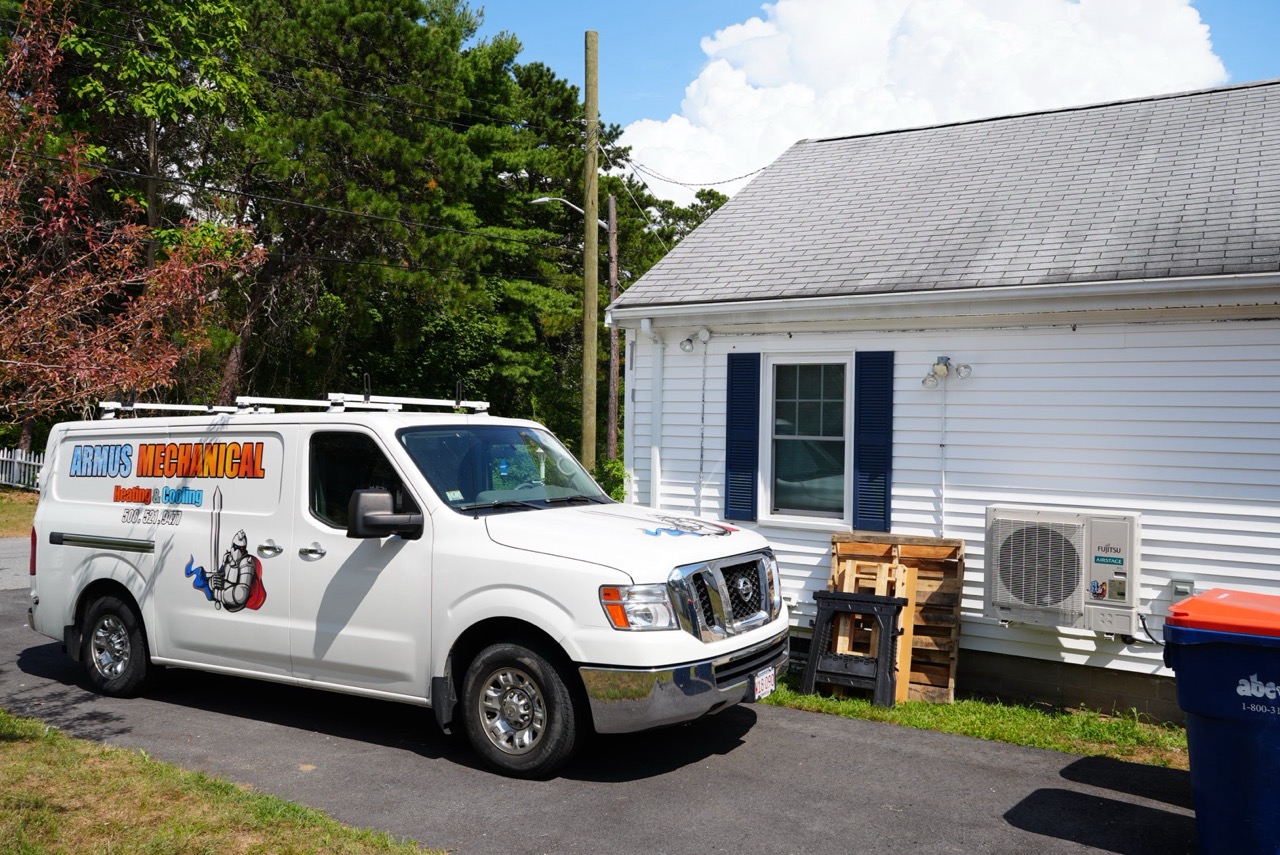
What Are the Key Parts of a Central Air Conditioning System?
A complete central AC setup comprises:
- Outdoor condenser/compressor: condenses refrigerant gas into a liquid.
- Indoor air handler/furnace coil: absorbs heat from indoor air.
- Duct network: distributes cooled air via supply and return channels.
- Thermostat and controls: regulate system cycles.
Together, these components form an integrated HVAC solution ideal for homes with existing duct infrastructure.
How Do Massachusetts-Specific Incentives and Rebates Affect Cooling System Choices?
Massachusetts homeowners can lower upfront costs significantly through state and federal programs that reward high-efficiency heating and cooling equipment.
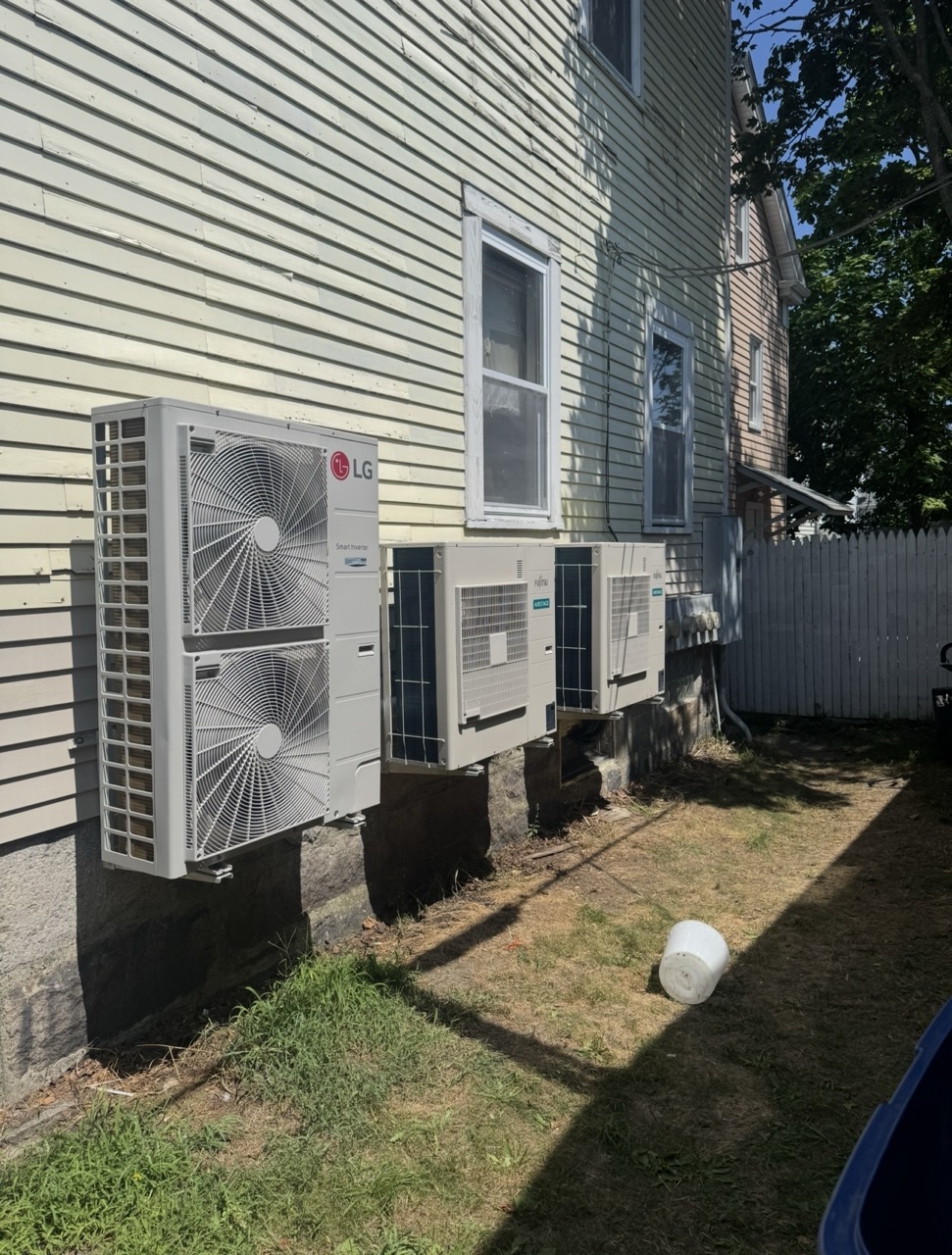
What Mass Save Rebates Are Available for Heat Pumps and Mini-Splits?
Mass Save rebates offer up to $10,000–$16,000 per home based on system size and efficiency.
- Single-zone mini-splits: $1,000–$2,500 per indoor unit.
- Multi-zone heat pumps: $4,000–$10,000 total.
- Gas or oil-to-heat-pump conversions earn bonus incentives.
Which Cooling System Is Best Suited for Different Massachusetts Home Types?
Massachusetts features diverse home styles—from historic colonials to modern construction—each with unique HVAC demands.
What Cooling Solutions Work Best for Historic Colonial and Triple-Decker Homes?
Colonials with plaster-and-lath walls and triple-deckers on narrow lots benefit from ductless mini-splits because:
- Refrigerant lines require minimal wall penetration.
- Multi-zone setups respect original floor plans.
- Low-impact installation preserves architectural details.
How Does Massachusetts Climate Influence Cooling System Performance?
Hot, humid summers and cold winters demand versatile systems. Heat pump-based mini-splits provide both cooling and heating with high seasonal efficiency, aligning with MA’s push toward electrification and carbon reduction goals.
Frequently Asked Questions About Ductless Mini-Splits vs Central Air in Massachusetts Homes
Is a Mini-Split Better Than Central Air for Massachusetts Homes?
Neither system is universally “better”; mini-splits excel in homes without ducts and offer precise zoning and high SEER ratings, while central air provides uniform whole-home cooling where ductwork already exists.
How Do Mass Save Rebates Work for Heat Pump Installations?
Mass Save rebates cover a portion of equipment and labor for qualifying heat pump systems; homeowners apply through participating contractors, submit efficiency documentation, and receive funds as post-installation credits.
Choosing between ductless mini-splits and central air hinges on your home’s duct infrastructure, budget parameters, and comfort priorities. Mini-splits deliver superior zoning, efficiency, and ease of retrofit, while central air offers seamless whole-home cooling in ducted properties. Evaluate incentives, installation complexity, and long-term savings to make an empowered decision. To explore personalized options or schedule a home assessment, contact Armus Mechanical today.

